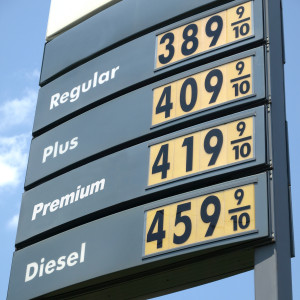Oil’s monopoly grip on transportation fuels hurts consumers and the economy in multiple ways. It enables OPEC to sustain its cartel pricing, inflating the price of crude oil beyond market forces and reducing net disposable individual income globally, not just here in the US. It subjects every consumer to geo-political volatility as it plays out in the price of oil products, regardless of where they live. It denies, especially in the U.S., the benefits of competition for transportation fuels from alternatives, including especially natural gas, biofuels and electricity. It delivers a dirtier fuel to motorists than alternatives.
Put simply, opening up the fuels market to alternatives increases availability, affordability and sustainability. What’s wrong with that?
It takes two regulatory changes to send a market signal that would provide what some call “fuel freedom” to consumers at both little and no cost. The first signal is to allow owners of vehicles to adjust the fuel software settings in their modern, say post-2004 model, vehicles and to turn them into the flex fuel vehicles that the basic design permits. This enables millions of vehicles to accept blended fuels, combining high percentages of ethanol and methanol, in gasoline at substantially lower retail prices, up to $2.00 per gallon. The second is to make methanol a legal fuel for automobiles. Two regulatory changes and the market will do the rest, paid for by private investors, with no public money (taxes) required.
What are we talking about in realistic terms? Let market forces drive the use of natural gas toward cleaner and more affordable fuels in the form of compressed natural gas (CNG), liquefied natural gas (LNG), clean diesel from natural gas (GTL), ethanol and methanol from natural gas. Continue to increase the availability of ethanol from biomass. Continue to encourage the production of electric battery vehicles. Hasten the introduction of hydrogen fuel cell electric vehicles. Reduce our demand for OPEC-priced oil!
In the case of natural gas as a transportation fuel consumers can be assured of volume quantities for decades and decades to come. The U.S. certainly has the natural gas resources to produce an additional 30 billion cubic feet of gas per day. This much natural gas could displace 5 million barrels of imported crude oil. The U.S. could become independent of crude oil imports from outside North America by increasing domestic oil production approximately 2 million more barrels per day, from 8 to 10 million; increasing domestic natural gas production from today’s 70 billion cubic feet to 100 billion; and utilizing imports of oil from Canada and Mexico to deliver the remaining daily need of about 3 million barrels of oil per day.
Building out the infrastructure to produce the additional energy and to manufacture the new transportation fuels would utilize an additional $300-500 billion of private investment dollars per year over the next 5 to 7 years along with a sustained higher capital spend than now to maintain the additional natural gas and oil production, adding 3 percent additional annual growth to GDP. The lower cost of natural gas fuels could save Americans up to $2.00 per gallon at the fuel pump, adding another additional 2 to 3 percent to GDP because of not sending hard earned US dollars to pay for OPEC’s high priced oil imports and instead spending or saving that money in the domestic economy.
What’s wrong with adding 5 to 6 percent growth to annual GDP in an economy that struggles to produce up to 2 percent growth? Nothing but the creation of millions of jobs, higher wages, more money to spend, more revenue to government at all levels of the economy, and more savings and investment and their collective positive impact on the economy.
We have the technology, the financial capital, and natural resources to make this possible. We can educate and train the human resources to deliver on this promise. We lack but one additional human factor to launch, pursue and capitalize on this engine of guaranteed economic growth, reduction in fuel costs, expansion of domestic and more sustainable fuel supply, it’s called lack of political leadership to set aside or eliminate the two regulatory disablers.
Blame whoever you choose: the President, the Cabinet, the Republicans and Democrats in the Legislature. Blame them all. We have known of our capacity to address these opportunities for domestic fuel choice for years and years. And yet here we go, enduring another summer of pain at the pump, aggravated by the geo-political uncertainties and volatility of the collapse of Iraq and sustained Syrian, Libyan, Russian distress, while remaining dependent on oil and oil pricing from OPEC. Whether we recover from the current international disorder, we know more is just around the corner, which could be even worse.
Must we really experience crisis, such as sustained low economic growth and ever higher fuel prices, even worse, the possibility of shortages of oil globally, before this country can do for itself what it knows rationally, practically, and realistically otherwise? All because we put up with inadequate or failed political leadership? All we can do to this point is say “yes” and point to ourselves as the cause of the problem. We elected these people and tolerate their results. It’s time for citizens to say “enough.” These political representatives work for, depend upon and frankly don’t have a job were it not for us, the citizens. Never forget: they work for us, not the other way around. It’s well past time to hold them accountable for doing what is right for citizens, the economy and national security. It’s time for fuel freedom.

